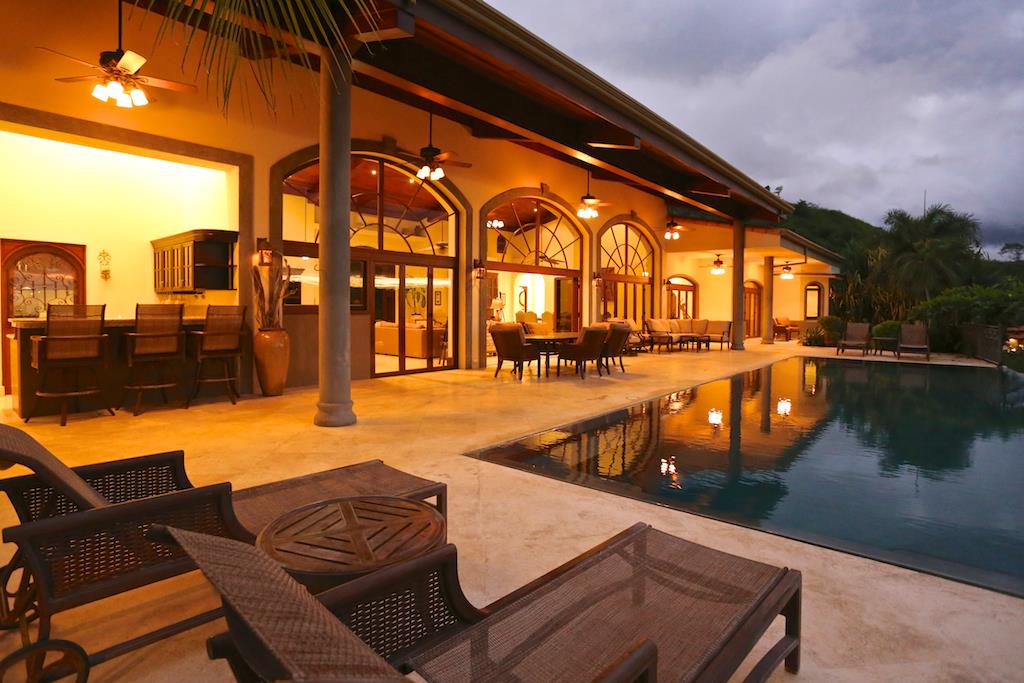Breaking News - BAC San Jose Bank is Offering Foreigners Quick Home Loan Approvals
Financing Options

Bank Loan
Financing through the banks is available in Costa Rica, but it is a time-consuming process that requires a lot of paperwork, can become costly and frustrating. It isn't easy to borrow funds from a Costa Rican bank, but there are other options.
As a foreigner, you can obtain financing from a few banks in Costa Rica, but it is painful. The paperwork is burdensome, and the customer service is mediocre at best.
Here are some bullet points for bank financing within Costa Rica.
- The banks will require between 25% - 30% down payment.
- Current interest rates are around 8%
- Terms are for 25 years.
- Normally loans are only fixed for 2-5 years and then become adjustable based on New York Prime Rate plus an index. For example, Scotiabank uses NYPR + 4.75%, and there is no ceiling rate should the NYPR increase.
- There is typically a prepayment penalty should you want to contribute over $10,000 to the principal amount at any time or pay off the note within the first 7-10 years.
- The bank will charge 1.5% of the loan in fees to acquire the mortgage
- You will need to provide customary documents such as a credit report, two years of tax returns, certification of income from a Costa Rican accountant, reference letters from your primary bank, 3 months of bank statements, 3 months of credit card statements, evidence of assets, evidence of down payment.
- You will be required to apply for a life insurance policy in Costa Rica that will secure the note for the amount and duration of the loan.
Owner Financing
If you have found the home you'd like to purchase but do not have the full amount to cover the cost, owner financing may be an option for you.
Most sellers require 50%-60% of the purchase price as a down payment, and they will finance the remaining 40%-50%. Loans are generally for 3 to 5 years, with the average interest rate ranging from 5%–7%, depending on the owner, but possibly can be higher. Terms vary with owner financing and can always be negotiated, and in most cases, there is not much room to negotiate the sale price.
At the time of closing, the title of the property will be held by the Seller until the loan is paid in full.
As the buyer, it is your responsibility to pay the costs of setting up the loan with your lawyer. in your name, but there will be a lien put against it, and if you default on your payment, the owner will be able to repossess the property. You can consult your lawyer for the cost of setting up a loan.
Equity Line of Credit
Do you have equity in your property? Most clients will obtain a loan or home equity line of credit or refinance their present mortgage in their home country. This could be an option to consider, but I recommend checking with a financial advisor first.
Self-Directed IRA using your 401(k)
If you have a 401(k), it is straightforward for you to roll it over to a self-directed IRA without paying early withdrawal penalties or pay taxes. I recommend using NuView, which will act as your custodian to your IRA. Financial advisors may tell you that you cannot use your IRA or 401(k) to purchase real estate. Advisors may try to get you to move money into a real estate trust or fund. Usually, it is done because they are unaware of this strategy, and there is no monetary incentive. NuView will work with you to set up your custodian account, with you paying annual fees for maintenance and fiduciary duties.
Cash
Cash is the easiest way to go! 99% of transactions are done in cash.





